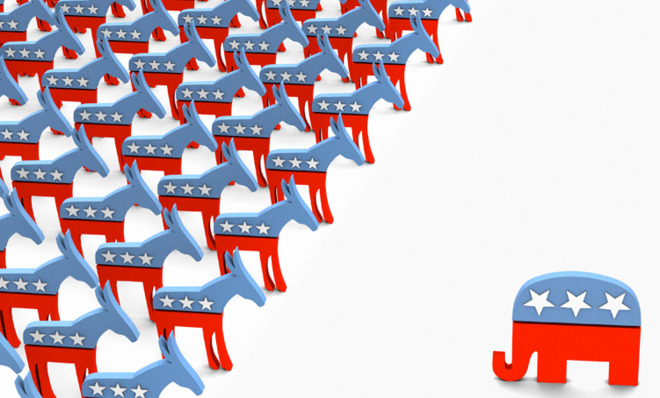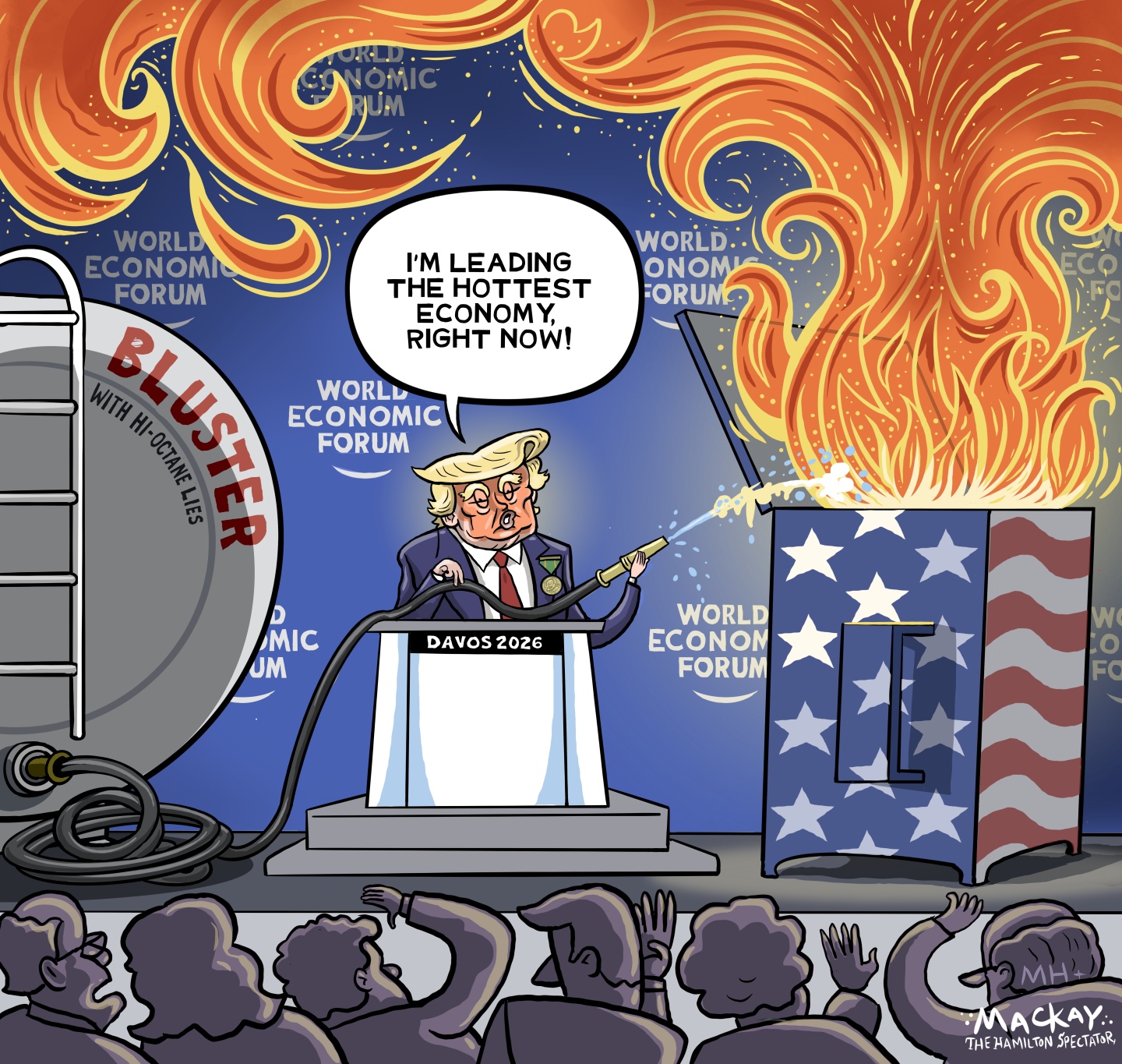Conservatives vastly exaggerate the unity of the left
There is no liberal version of the Tea Party. But that doesn't mean the left agrees on everything.


In politics as in war, people tend to overestimate the strength of their enemies.
Jonah Goldberg provided a recent example of this, arguing that the left is formidably united while conservatives are not. He may have a point that conservative unity — long a trope in American politics — is overstated, but he is decisively wrong about the degree of liberal unity.
Here's Goldberg:
The Week
Escape your echo chamber. Get the facts behind the news, plus analysis from multiple perspectives.

Sign up for The Week's Free Newsletters
From our morning news briefing to a weekly Good News Newsletter, get the best of The Week delivered directly to your inbox.
From our morning news briefing to a weekly Good News Newsletter, get the best of The Week delivered directly to your inbox.
[W]hy hasn't the left been roiled with ideological and factional squabbles the way conservatism has been over the last few years? Where is the Occupy Wall Street vs. establishment brouhaha to correspond with the Tea Party vs. establishment "civil war"?
We talk a lot about fusionism on the right, but the real fusion has been on the left...
When was the last time you heard liberals have a really good, public, ideological fight about anything? I'm sure there have been some interesting arguments between bloggers and the like. But I can't think of anything — on domestic policy at least — that has spilled out onto the airwaves and op-ed pages in a sustained way. [National Review]
Part of this is that each side erroneously believes that the enemy is a rigidly disciplined organization with perfect strategy and tactics.
However, Goldberg is badly mistaken about intra-left disputes. This isn't exactly surprising, since he has a completely ridiculous view of political ideology, and probably isn't keeping up on all the hot new radical mags out there. But I'm here to tell you that liberals fight — a lot.
From a conservative perspective, I bet these fights are easy to miss, since leftists are nearly absent from the political scene. I have often bemoaned the lack of some kind of Tea Party-like movement to engage with the political system. Occupy Wall Street, for all its many virtues, seemed to regard the electoral process with some disdain.
This is a major difference between right and left. The right wing has had amazing success in pushing the Republican Party to the right and getting dozens of true believers elected to national office. It is also riddled with nuttiness and is almost comically bad at many aspects of political tactics.
A free daily email with the biggest news stories of the day – and the best features from TheWeek.com
The left wing, meanwhile, is largely powerless, even though its policy prescriptions should be pretty popular given the current state of our deeply unequal economy. There hasn't been a significant leftist presence in Congress since the 1930s at least.
Goldberg seems to think this is an indication of consensus in the Democratic Party. But all it means is that leftists have little sway within it.
Ryan Cooper is a national correspondent at TheWeek.com. His work has appeared in the Washington Monthly, The New Republic, and the Washington Post.
-
 Political cartoons for January 25
Political cartoons for January 25Cartoons Sunday's political cartoons include a hot economy, A.I. wisdom, and more
-
 Le Pen back in the dock: the trial that’s shaking France
Le Pen back in the dock: the trial that’s shaking FranceIn the Spotlight Appealing her four-year conviction for embezzlement, the Rassemblement National leader faces an uncertain political future, whatever the result
-
 The doctors’ strikes
The doctors’ strikesThe Explainer Resident doctors working for NHS England are currently voting on whether to go out on strike again this year
-
 The billionaires’ wealth tax: a catastrophe for California?
The billionaires’ wealth tax: a catastrophe for California?Talking Point Peter Thiel and Larry Page preparing to change state residency
-
 Bari Weiss’ ‘60 Minutes’ scandal is about more than one report
Bari Weiss’ ‘60 Minutes’ scandal is about more than one reportIN THE SPOTLIGHT By blocking an approved segment on a controversial prison holding US deportees in El Salvador, the editor-in-chief of CBS News has become the main story
-
 Has Zohran Mamdani shown the Democrats how to win again?
Has Zohran Mamdani shown the Democrats how to win again?Today’s Big Question New York City mayoral election touted as victory for left-wing populists but moderate centrist wins elsewhere present more complex path for Democratic Party
-
 Millions turn out for anti-Trump ‘No Kings’ rallies
Millions turn out for anti-Trump ‘No Kings’ ralliesSpeed Read An estimated 7 million people participated, 2 million more than at the first ‘No Kings’ protest in June
-
 Ghislaine Maxwell: angling for a Trump pardon
Ghislaine Maxwell: angling for a Trump pardonTalking Point Convicted sex trafficker's testimony could shed new light on president's links to Jeffrey Epstein
-
 The last words and final moments of 40 presidents
The last words and final moments of 40 presidentsThe Explainer Some are eloquent quotes worthy of the holders of the highest office in the nation, and others... aren't
-
 The JFK files: the truth at last?
The JFK files: the truth at last?In The Spotlight More than 64,000 previously classified documents relating the 1963 assassination of John F. Kennedy have been released by the Trump administration
-
 'Seriously, not literally': how should the world take Donald Trump?
'Seriously, not literally': how should the world take Donald Trump?Today's big question White House rhetoric and reality look likely to become increasingly blurred
